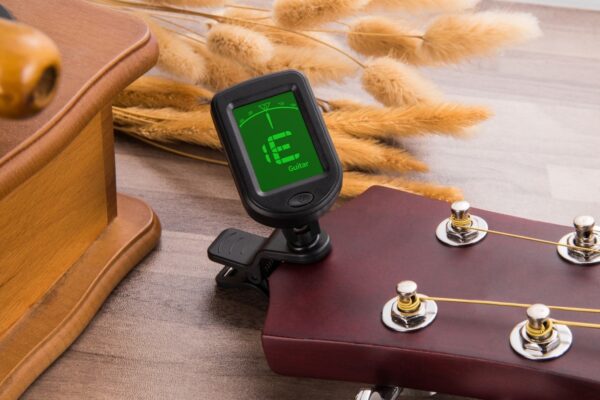Whether you’re a seasoned bassist performing in front of packed venues or a beginner jamming in your bedroom, the right accessories can enhance your playing experience, protect your instrument, and improve your overall performance. The bass guitar is a versatile instrument, and while it’s easy to get lost in the endless array of gear, a few key accessories stand out as must-haves. Gerard Zappa provides a comprehensive guide to the essential items every bassist should consider.
1. High-Quality Strings: Your Bass’s Voice
Bass strings are fundamental to your sound and playability. The type of strings you use can dramatically influence your tone. Here are the most common types:
- Roundwound Strings: These are bright and versatile, making them a go-to choice for most styles of music.
- Flatwound Strings: Known for their warm, mellow tones, flatwounds are ideal for jazz, Motown, or any vintage sound.
- Coated Strings: Designed for longevity, these are a solid option for players who want to extend the life of their strings without sacrificing tone.
Experimenting with string gauges and materials (like nickel or stainless steel) can help you find your signature sound.
2. A Reliable Tuner: Stay Pitch Perfect
Even the best bassist sounds off without proper tuning. A reliable tuner is non-negotiable. Popular options include:
- Clip-On Tuners: Convenient and portable, these attach to your bass’s headstock.
- Pedal Tuners: A must for live performances, pedal tuners are accurate and can mute your signal during tuning.
- App-Based Tuners: Budget-friendly and easily accessible, but often less precise than hardware tuners.
3. Comfortable Strap and Strap Locks: Play Without Limits
A durable, padded strap ensures comfort during long playing sessions or gigs. Consider adjustable straps made from leather, neoprene, or polyester, depending on your preference. Don’t overlook strap locks, which secure your bass and prevent accidental drops—a small investment that protects your instrument from potential disaster.
4. Gig Bag or Hard Case: Safeguard Your Bass
Transporting your bass safely is crucial. Choose between:
- Padded Gig Bags: Lightweight and easy to carry, these are perfect for casual use.
- Hard Cases: Ideal for professional bassists who need maximum protection during travel.
Look for cases with extra compartments for storing accessories like tuners, cables, and tools.
5. Amplifier and Cables: Your Sound’s Backbone
A quality amplifier is essential for any bassist. Depending on your needs, you can choose between practice amps, combo amps, or dedicated bass heads and cabinets. When it comes to cables, invest in sturdy, low-noise cables that won’t interfere with your signal. Popular brands like Mogami, Planet Waves, and Monster offer reliable options.
6. Effects Pedals: Expand Your Sonic Palette
Effects pedals aren’t just for guitarists. Bass effects pedals can add depth and creativity to your playing. Some popular types include:
- Compression Pedals: Smooth out dynamics and enhance sustain.
- Overdrive/Distortion Pedals: Add grit and character to your tone.
- Chorus Pedals: Create a lush, modulated sound.
- EQ Pedals: Fine-tune your tone for any playing environment.
A multi-effects unit is an excellent choice for beginners looking to experiment with a variety of sounds without investing in individual pedals.
7. Metronome or Rhythm Trainer: Master Your Timing
Precision is key to being a great bassist. A metronome helps you lock in your timing, whether you’re practicing at home or rehearsing with a band. Many modern metronomes come with built-in rhythm training functions, allowing you to practice complex grooves and syncopated beats.
8. String Cleaner and Maintenance Tools: Prolong Your Bass’s Life
Keeping your strings clean extends their life and maintains tone quality. String cleaners, such as alcohol wipes or dedicated string cleaning tools, remove sweat and grime. Additionally, a basic maintenance kit—including screwdrivers, hex wrenches, and a microfiber cloth—ensures your bass stays in top shape.
9. Bass-Specific Picks: For a Different Attack
While many bassists prefer fingerstyle or slap techniques, picks (or plectrums) offer a unique tonal quality. Bass-specific picks are thicker and more robust than guitar picks, providing greater control and a fuller sound. Experiment with different materials, like nylon, tortex, or celluloid, to find your ideal tone.
10. A Sturdy Stand or Wall Mount: Showcase and Protect
When your bass isn’t in use, a good stand or wall mount ensures it’s safe and accessible. Stands prevent accidental tipping, while wall mounts can double as a decorative way to display your instrument.
11. In-Ear Monitors or Headphones: Hear Every Nuance
Monitoring your sound accurately is crucial, especially in live or studio settings. In-ear monitors (IEMs) allow you to hear your playing clearly while reducing stage noise. For practice, a good pair of headphones ensures you can play silently without disturbing others while still enjoying excellent audio quality.
12. Practice Apps and Software: Level Up Your Skills
Modern technology offers bassists incredible tools for practice and learning. Apps like Fender Play, Yousician, and BandLab provide guided lessons, backing tracks, and recording features to help you refine your skills.
13. Capos for Fretboard Flexibility
While not as common for bassists as for guitarists, a capo can be handy for playing in alternative tunings or experimenting with different tonal ranges. Look for bass-specific capos designed for wider necks and thicker strings.
Investing in the right accessories not only enhances your playing experience but also ensures your instrument stays in peak condition. While some items, like strings and tuners, are essential for every bassist, others, such as effects pedals and practice apps, can help you expand your creativity and technical skills. Start with the basics, and as your playing evolves, add gear that complements your unique style.
By equipping yourself with these must-have accessories, you’ll be ready to tackle any stage, rehearsal, or recording session with confidence. After all, a well-prepared bassist is an unstoppable force in any band.
